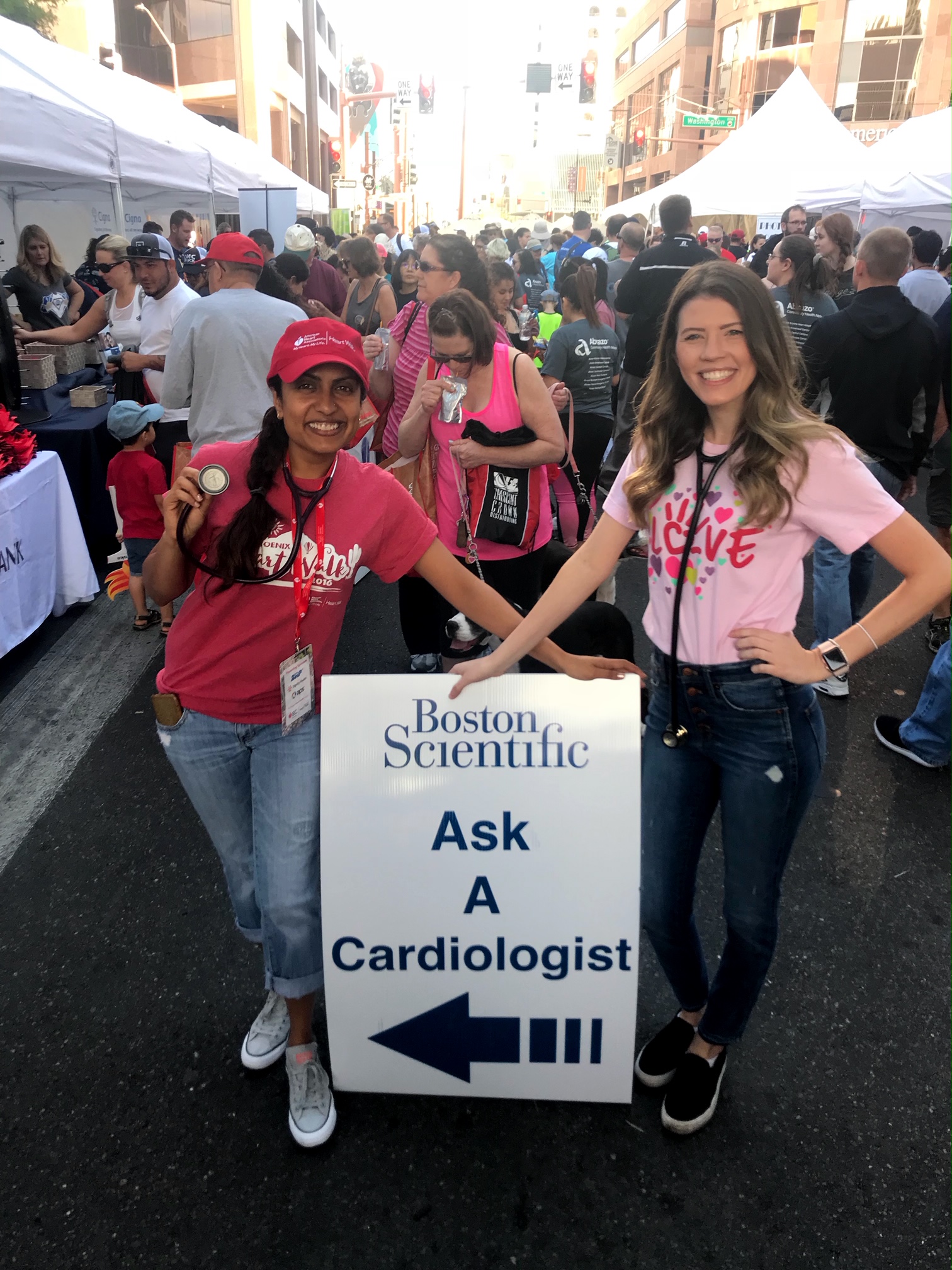Arizona Heart 360 is a top rated medical practice that aims to meet the different needs of its patients. Dr. Desai’s expertise is in cholesterol management, understanding the impact of a family history of heart disease, and autonomic dysfunction such as that seen in long COVID syndromes.
Dr. Desai takes the time to listen and believes in a collaborative approach between patients and herself to keep you healthy.
Feeling rushed out of your doctor's office with several questions unanswered? Not here, Dr. Desai answers all of your questions.
At Arizona Heart 360, you get much more than a check up. Dr. Desai has a comprehensive and holistic approach to cardiovascular care.
Dr. Desai does a thorough evaluation, including advanced testing, to address your unique concerns.
Dr. Desai has been invited to serve on several prominent leadership panels, including the American Heart Association Phoenix Board, across the Valley to teach men and women about signs of heart disease.


For many years, Dr. Desai has volunteered at various Phoenix community events offering free checkups for patients in the Valley.
Dr. Desai left everything behind, including a lucrative employed practice, to take medicine back to taking care of families. Spending time with patients so that they never leave feeling unheard is most important at Arizona Heart 360.


Dr. Desai is a native of Los Angeles, CA- a graduate of the University of Southern California, where she did her residency in Internal Medicine, followed by a Cardiology fellowship at Banner University of AZ Medical Center in Phoenix She is passionate about autonomic dysfunction in different types of patients, including those who are hyperflexible, with autoimmune disease, and post-COVID 19 long hauler patients. She wants her patients to feel heard and truly cares for them by listening to their needs. She focuses on keeping her patients healthy. She has won Cardiologist of the Year in AZ. Dr. Desai served on the American Heart Association Board. She served as the AZ state chair of the Women in Cardiology Section of the American College of Cardiology for nearly 10 years. She is passionate about teaching and is Assistant Professor of Medicine at the University of AZ medical school as well as at the Southwest College of Naturopathic Medicine. In her free time, Dr. Desai enjoys hiking, swimming, and running with her family.
Low-density lipoprotein, or “bad” cholesterol, is associated with an increased risk of heart problems. For certain cardiac patients, particularly those with substantial plaque in their coronary arteries, we aim to keep the LDL < 70. We work with you to get your cholesterol down through a personalized program @ Arizona Heart 360.
A blood pressure of less than 120/80 mmHg is considered optimal for most adults. Uncontrolled BP can lead to a heart attack, aneurysms, or stroke. You can try to prevent high blood pressure by making lifestyle changes, such as regular exercise and following a heart healthy diet, and following up with a cardiologist to investigate underlying causes.
Keep in mind that men and women can have different symptoms. The classic symptoms of a heart attack can be chest pressure that may go down the arm or up into the jaw and increase with exertion, shortness of breath, or fatigue. Women may say they have abdominal pain, dizziness, nausea, or they are breaking out in a cold sweat with clammy hands.
Yes, there are other options available. If you are statin intolerant, you should not feel doomed or worried. At Arizona Heart 360, we have an integrative approach that utilizes certain supplements in addition to an important personalized lifestyle program to attack your cholesterol.
It’s never too early to seek a preventative opinion on your heart health, particularly if you have a first degree relative who has heart disease. Cardiac disorders- arrhythmias, cardiomyopathies, and bad cholestero- can be inherited. Coronary artery disease leading to heart attack, stroke, and heart failure can run in families. The risk for heart disease can increase even more when heredity combines with unhealthy lifestyle choices, such as smoking cigarettes and eating an unhealthy diet.
Yes, you may have Postural Orthostatic Tachycardia Syndrome and we do have a treatment program. This requires a full detailed evaluation at Arizona Heart 360.